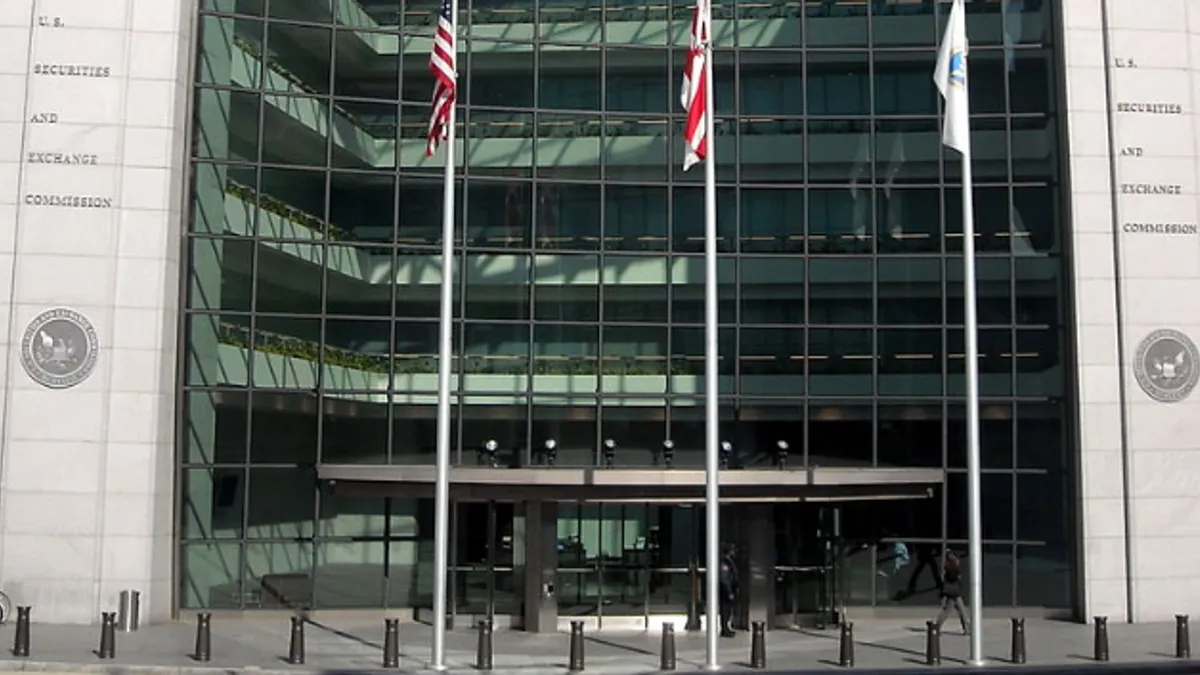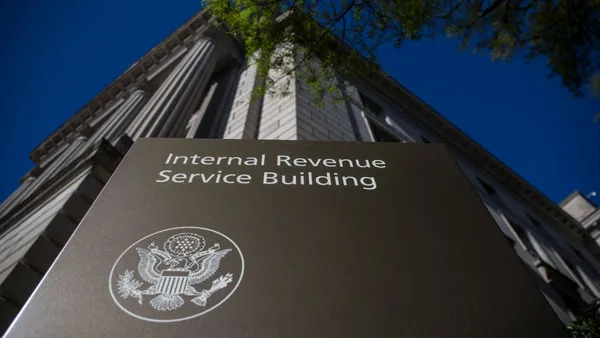Dive Brief:
- Ares Management, a private equity firm and investment adviser, agreed to pay $1 million to settle charges that it failed to implement a system to prevent the misuse of material nonpublic information, the Securities and Exchange Commission (SEC) announced.
- The firm was charged with having inadequate controls in place when it let an employee participate in trading decisions about a company in its portfolio while that same employee sat on the company's board.
- "Investment advisers and private equity firms that place employees on the boards of public companies bear heightened risks that they will obtain nonpublic material information through their representative occupying dual roles," Anita Bandy, SEC Division of Enforcement associate director.
Dive Insight:
Under the SEC's charge, Ares in 2016 invested several hundred million dollars in a public company through a loan and equity investment that allowed the firm to appoint a senior employee to the company’s board.
The firm's compliance policies failed to account for the special circumstances presented by having an employee serve on the portfolio company's board while that employee continued to participate in trading decisions regarding the portfolio company, the SEC said.
Under the arrangement, Ares obtained potential material nonpublic information about the company, including through Ares’s representative on the company’s board, relating to changes in senior management, adjustments to the company’s hedging strategy, and decisions with respect to the company’s assets, debt, and interest payments.
After receiving this information, Ares purchased over 1 million shares of the company’s common stock, 17% of the publicly available shares.
The firm took these actions without requiring its compliance staff, prior to approving the trades, to sufficiently inquire and document whether the board representative and members of his Ares team possessed material nonpublic information relating to the portfolio company.
"It is critical for firms like Ares to have proper policies and procedures in place to address these risks and prevent the misuse of information obtained under these special circumstances," Bandy said.
Under the settlement, Ares neither admitted nor denied it violated compliance requirements of the Investment Advisers Act of 1940.














